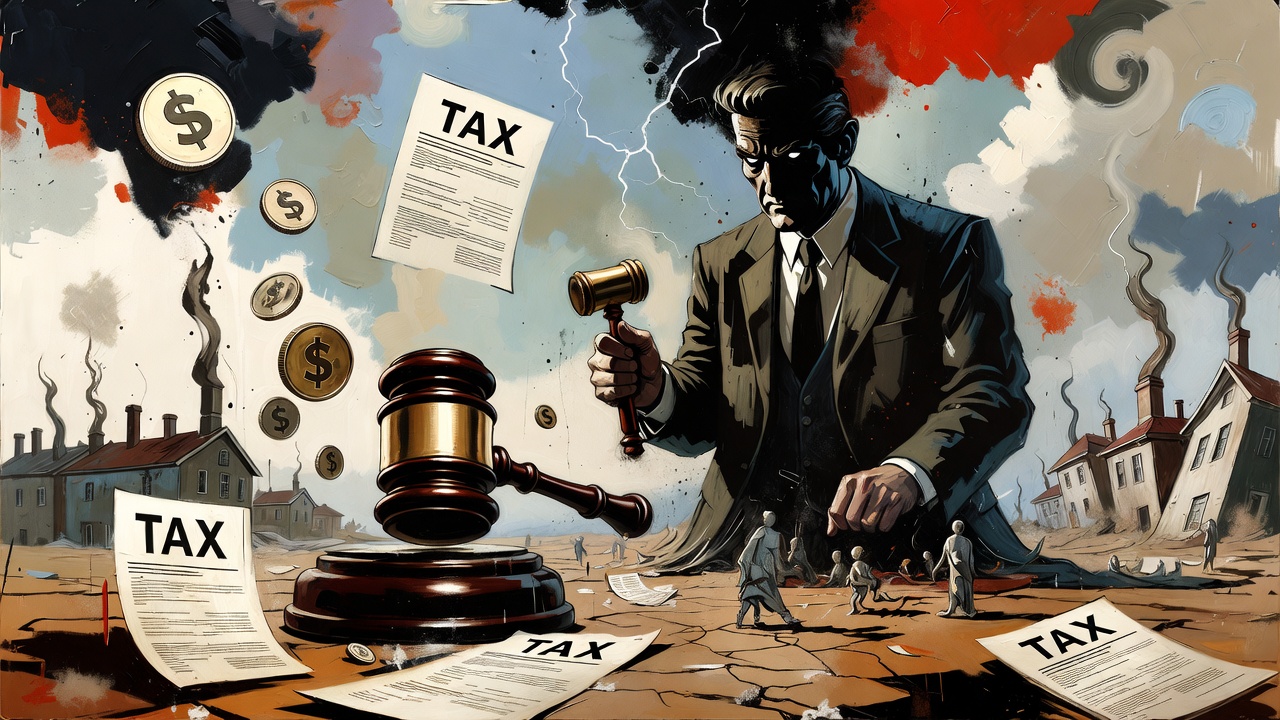
The Stand-Still Principle in Civil Transaction Taxes: An Analysis of the Gdańsk Regional Administrative Court Decision of September 2, 2025
The decision rendered by the Regional Administrative Court in Gdańsk on September 2, 2025 (I SA/Gd 506/25) represents a significant contribution to the evolving jurisprudence concerning the application of the European stand-still principle within the framework of Polish civil transaction taxation. This case involved the taxation of capital increase transactions undertaken by a limited liability company whose ownership structure corresponded to the historical definition of a socialized economy entity (jednostka gospodarki uspołecznionej).
The court‘s holding suggests that entities under indirect State Treasury control may qualify for exemption from civil transaction taxes when undertaking capital increases, provided their ownership structures satisfy the criteria for socialized economy entities as they existed in 1984. This development carries particular significance for large-scale investment projects undertaken by energy, extractive, and infrastructure companies, where capital increases frequently reach hundreds of millions of Polish złoty.
It bears emphasis that this decision remains subject to appellate review by the Supreme Administrative Court. Moreover, as the court itself acknowledges, the tax authorities must now reconsider the matter in accordance with the guidelines articulated in the court’s reasoning.
Factual Background
The limited liability company in question executed a capital increase of 50 million złoty, from which a notary collected civil transaction tax in the amount of 249,954 złoty. The company’s ownership structure was characterized by complete control through a subsidiary owned entirely by an entity in which the State Treasury holds a 100% interest. The company sought recognition of an overpayment, contending that its ownership structure satisfied the definition of a socialized economy entity operative on July 1, 1984, and that taxation of such transactions following Poland’s EU accession violates the stand-still principle.
The tax authorities rejected this argument, emphasizing the objective nature of the stand-still clause’s application criteria and noting that the company was established in 2014, well within the framework of a market economy.
The Nature of the Stand-Still Principle
The stand-still principle, though not explicitly articulated in the capital directives, constitutes a fundamental constraint upon member states’ discretion in imposing taxes on capital formation. As the Gdańsk court observed, this principle derives from Article 7(1) of Directive 69/335/EEC as amended by Directive 85/303/EEC, which obligates member states to exempt from capital taxation those operations that were either exempt or subject to rates of 0.5% or lower on July 1, 1984.
The European Commission, in its proposal concerning Directive 2006/0253 CNS, determined that the objectives of the capital directives had been interpreted as creating an implicit obligation to observe the stand-still principle. This interpretation establishes that states that have abolished capital taxation may not subsequently reintroduce it. The reference date of July 1, 1984, binds all member states, including those that acceded to the EU subsequently, as confirmed by the Court of Justice in its judgment of February 16, 2012, in Case C-372/10 Pak-Holdco.
Criteria for Application of the Principle
Traditional interpretations held that the stand-still clause operated exclusively on an objective basis. This position was advanced by the tax authorities in the present case, who argued that the criteria for applying Article 7(1) of Directive 69/335/EEC are objective rather than subjective, rendering detailed analysis of the personal scope of the stamp duty law irrelevant.
The Gdańsk court, however, adopted a divergent position, citing Supreme Administrative Court decisions in cases III FSK 31/24 and III FSK 680/24. The court reasoned that since the 1975 Stamp Duty Act excluded socialized economy entities from taxation when making contributions to companies, the “cessation of tax collection” within the meaning of Directive 2008/7/EC encompasses the complete exclusion of specified transactions from the scope of taxation, irrespective of whether such exclusion derives from objective or subjective criteria.
The court concluded that distinguishing between legal prerequisites based on their objective or subjective character lacks adequate normative foundation when such prerequisites result in the effective non-taxation of specific transactions. The court emphasized that the “strict conditions” for continued capital taxation referenced in recital 8 of Directive 2008/7 encompass not merely prohibitions against expanding the scope of taxation, but also restrictions on enlarging the circle of entities subject to such taxation.
Socialized Economy Entities
Under the Act of February 26, 1982, concerning the taxation of socialized economy entities, such entities encompassed, inter alia, commercial companies in which the State Treasury or other socialized economy entities held more than 50% of the share capital. This category was precisely defined and included entities operating under the provisions of the 1934 Commercial Code, as well as cooperatives and state enterprises.
The exemption of socialized economy entities from stamp duty when making contributions to companies remained in effect only until March 1, 1989, when new stamp duty legislation took effect. From that date, all entities, regardless of status, became subject to taxation upon capital increases. However, from the perspective of the stand-still principle, the relevant legal framework is that which existed on July 1, 1984, rather than subsequent legislative modifications.
The Court’s Reasoning
The Gdańsk court determined that the central question was whether, under Articles 7(1)-(2) of Directive 2008/7 of February 12, 2008, concerning indirect taxes on capital formation, read in conjunction with Articles 7(1)-(2) of Directive 69/335 of July 17, 1969, the taxation of contributions to capital companies depends upon whether such contributions were made by entities satisfying the definition of socialized economy entities under the legal framework operative on July 1, 1984.
The court observed that contributions to companies by such entities on that date were not subject to stamp duty taxation. In the court’s assessment, the cessation of “tax collection” should be understood as encompassing the complete exclusion of specified civil law transactions from the objective scope of taxation. The court stressed that distinguishing between legal prerequisites on objective versus subjective grounds, when such prerequisites result in the effective non-taxation of particular transactions, lacks justification.
Implications of the Decision
The Gdańsk court vacated the challenged decision and awarded the complainant 7,917 złoty in procedural costs against the Director of the Tax Chamber in Warsaw. Upon reconsideration, the tax authority will be obligated to account for the stand-still principle.
As the court indicated, the appellate tax authority must, pursuant to Article 153 in conjunction with the Code of Administrative Procedure, consider the legal assessment articulated by the court. The essence of this assessment maintains that contributions to, and increases of, share capital were not universally subject to capital formation taxation on July 1, 1984. Such transactions remained untaxed when undertaken by entities qualifying as socialized economy entities.
Conclusions
The Gdańsk court‘s decision reinforces the Supreme Administrative Court’s jurisprudential line regarding the significance of subjective criteria in applying the stand-still principle. This holding may prove consequential for companies with State Treasury participation, which should examine their ownership structures to determine potential applicability of stand-still exemptions.
Tax authorities face the challenge of developing coherent interpretive guidelines that account for judicial precedent. It will be necessary to establish clear criteria for assessing whether particular entities would satisfy the socialized economy entity definition and to create comprehensive documentation requirements for demonstrating such status.
From a legislative perspective, consideration might be given to amending the civil transaction tax statute to clarify the scope of stand-still exemptions. Alternatively, a reference for a preliminary ruling to the Court of Justice might definitively resolve questions regarding the significance of subjective criteria in applying this principle.

Founder and Managing Partner of Skarbiec Law Firm, recognized by Dziennik Gazeta Prawna as one of the best tax advisory firms in Poland (2023, 2024). Legal advisor with 19 years of experience, serving Forbes-listed entrepreneurs and innovative start-ups. One of the most frequently quoted experts on commercial and tax law in the Polish media, regularly publishing in Rzeczpospolita, Gazeta Wyborcza, and Dziennik Gazeta Prawna. Author of the publication “AI Decoding Satoshi Nakamoto. Artificial Intelligence on the Trail of Bitcoin’s Creator” and co-author of the award-winning book “Bezpieczeństwo współczesnej firmy” (Security of a Modern Company). LinkedIn profile: 18 500 followers, 4 million views per year. Awards: 4-time winner of the European Medal, Golden Statuette of the Polish Business Leader, title of “International Tax Planning Law Firm of the Year in Poland.” He specializes in strategic legal consulting, tax planning, and crisis management for business.



